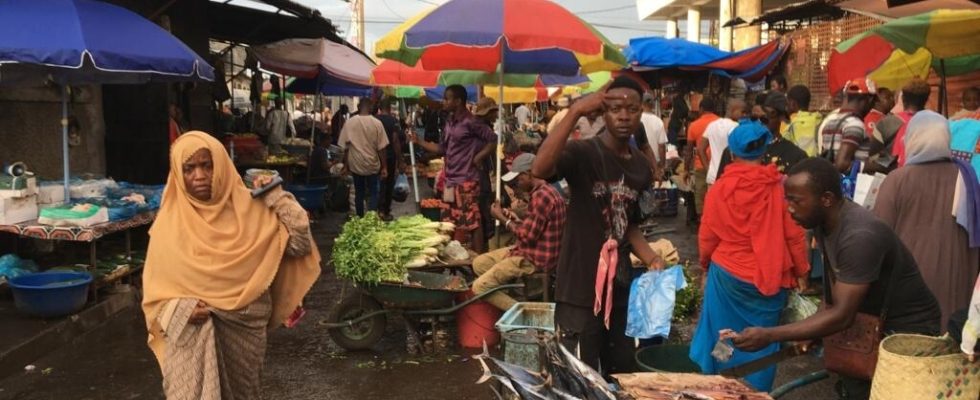The presidential election will be held next Sunday, in four days. In power since 2016, Azali Assoumani is seeking a new mandate. Facing him, five candidates who all contest the constitutional reform which enabled this new candidacy of President Azali. All also express fears about the transparency and credibility of the election. Part of the opposition is even calling for a boycott. Comorian citizens are obviously concerned about their rights and their freedoms, they are also concerned about their daily difficulties: high cost of living, unsanitary conditions… Report from the large Volo-Volo market.
2 mins
With our special correspondent in Moroni, David Bache
The bays of Volo-Volo are teeming with people, but few of them agree to answer the microphone. Saïd, on the contrary, wants to say what is on his heart. “ Comorian citizens, we are fed up. There’s nothing that works. Do you see the electricity? it only works in Moroni. Outside, in the countryside, there will never be electricity. We have no water, we have nothing at all. We prefer to go by boat and go anywhere. We don’t want to leave our country, but life is catastrophic. I’m not going to vote, I’m not voting myself! »
At Abdou, a clothing seller, spite prevails over anger. “ There’s a lot of trouble here. Life is expensive in the Comoros. I’m working. When you have sold 5,000, you eat at 5,000. The next day, there is nothing. When I don’t work, I can’t eat. » As for whether the election can change anything, Abdou believes that “ voting is not the solution “. He does “ not trust » to the candidates.
Ahmed is a street vendor, and on Sunday his steps will take him to the polls. Because he expects change in his daily life. ” He There is really a very significant shortage of water, but also electricity. There are no jobs, salaries are very low. Customs taxes are very high. it blocks us. We can’t open a business or start a project. So we try to see among the candidates who could perhaps do something. Maybe. We always have to hope, we don’t know. »
45%, almost half, of the more than 830,000 inhabitants of the Comoros archipelago live below the poverty line, according to the World Bank.
Read alsoPresidential election in the Comoros: issues and promises of the candidates
